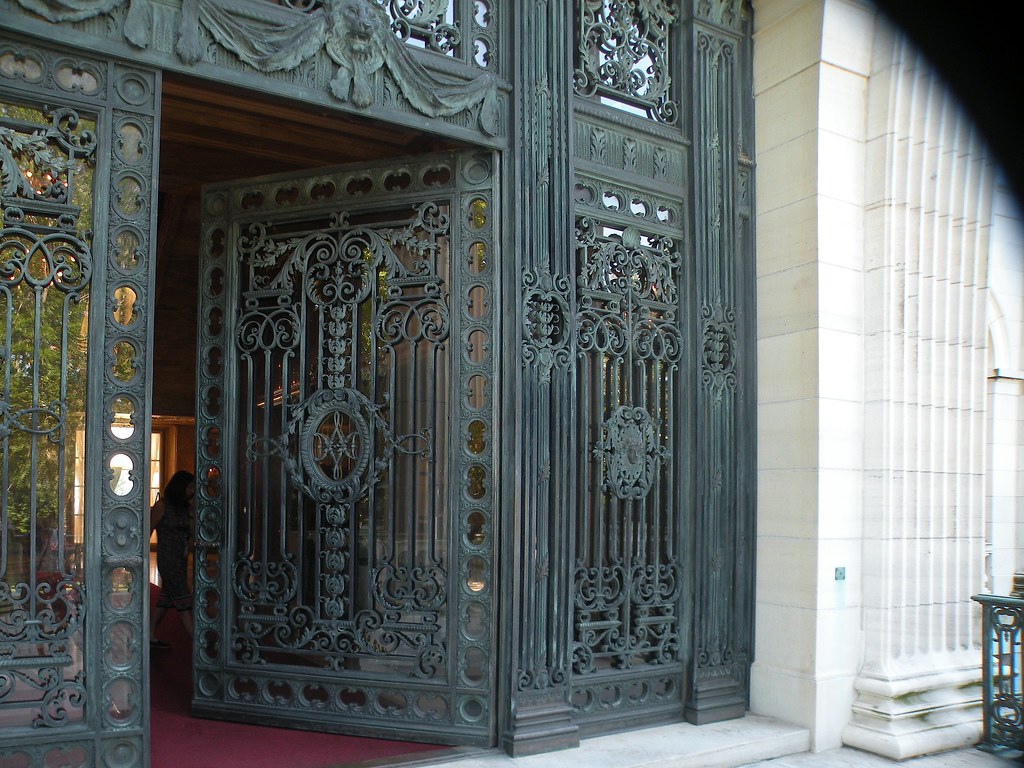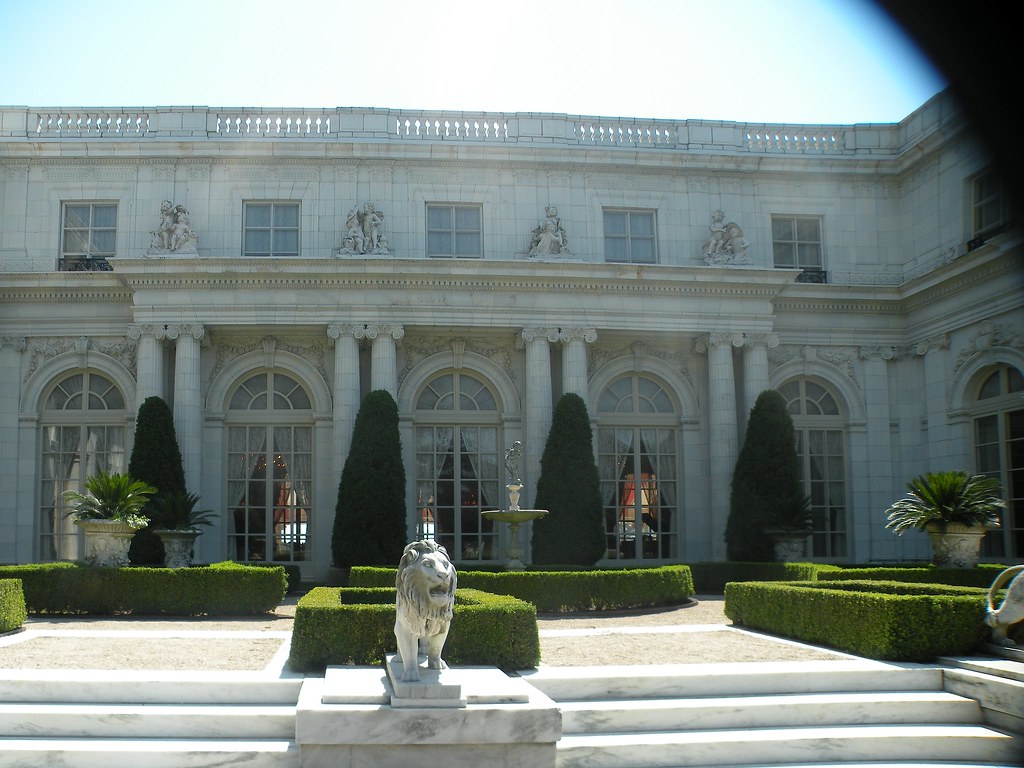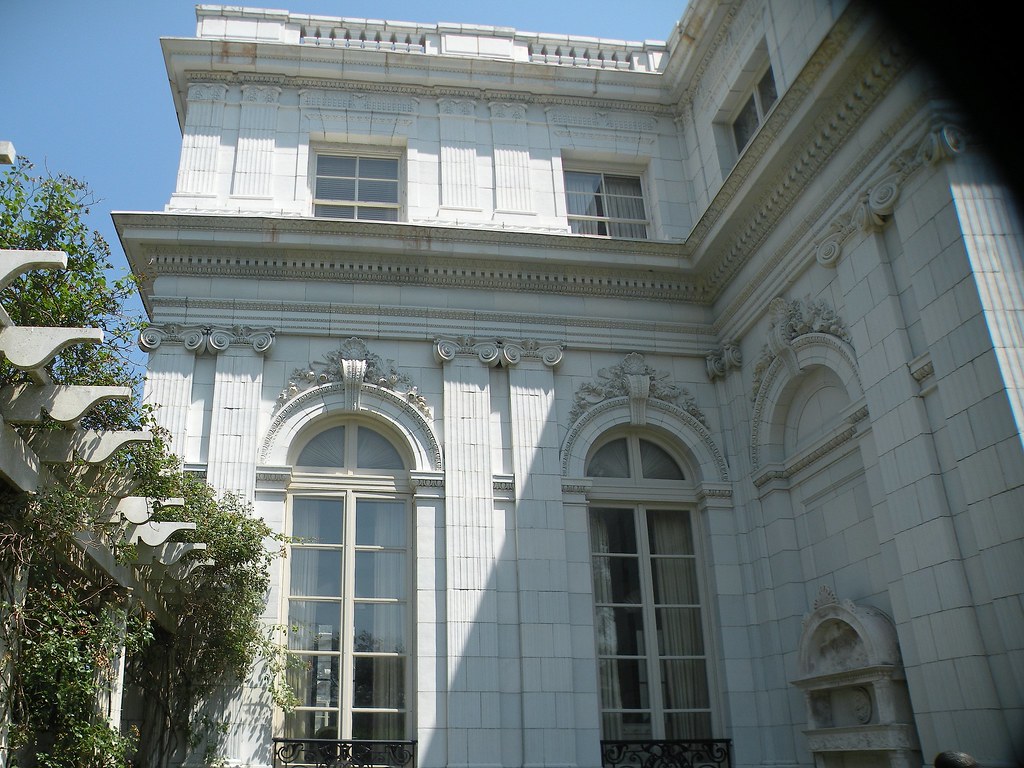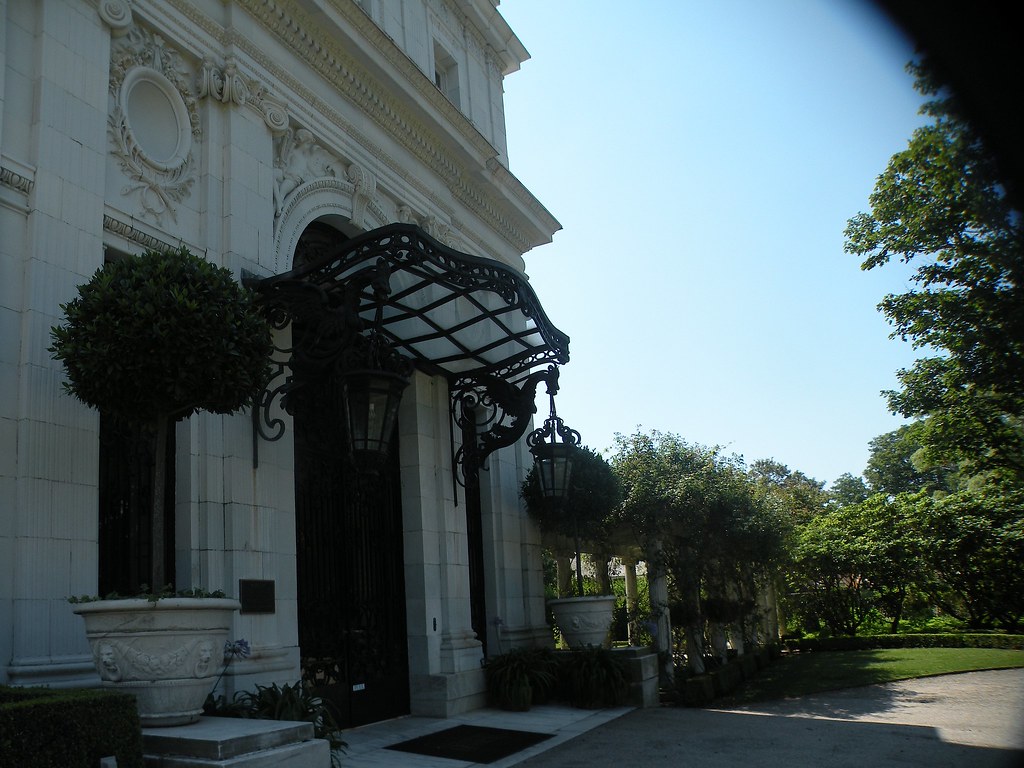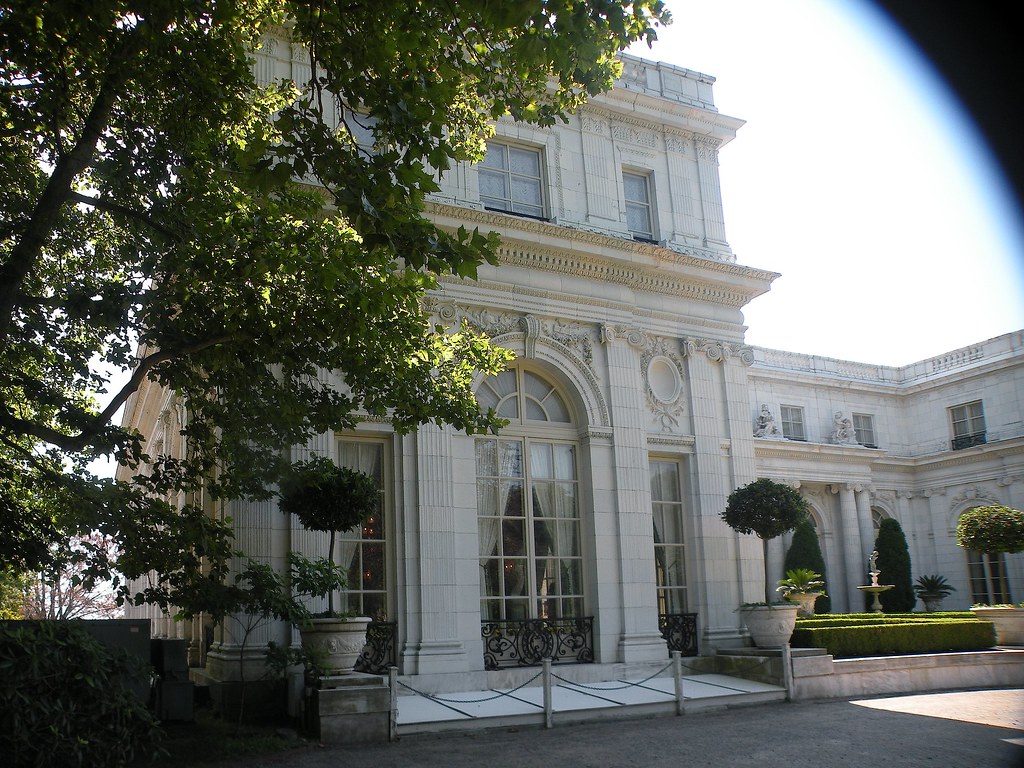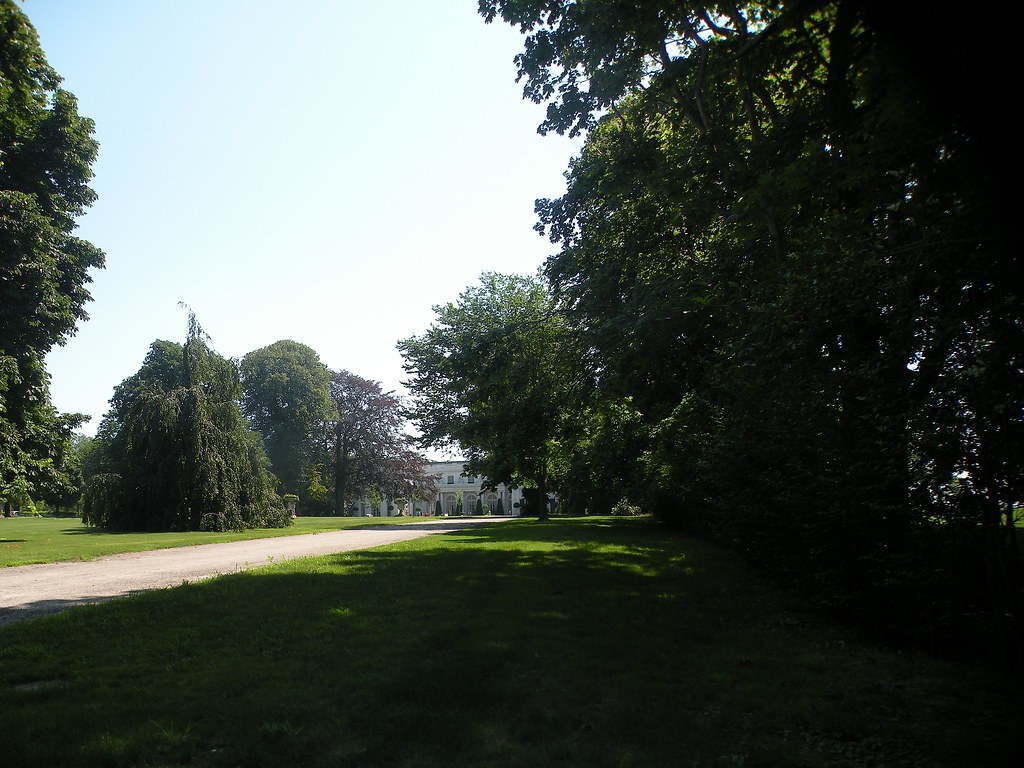Unfortunately they would not let me take pictures while I was inside the mansions. : - ((( I did see inside pictures on Pinterest. It is worth taking a look at all the beauty!
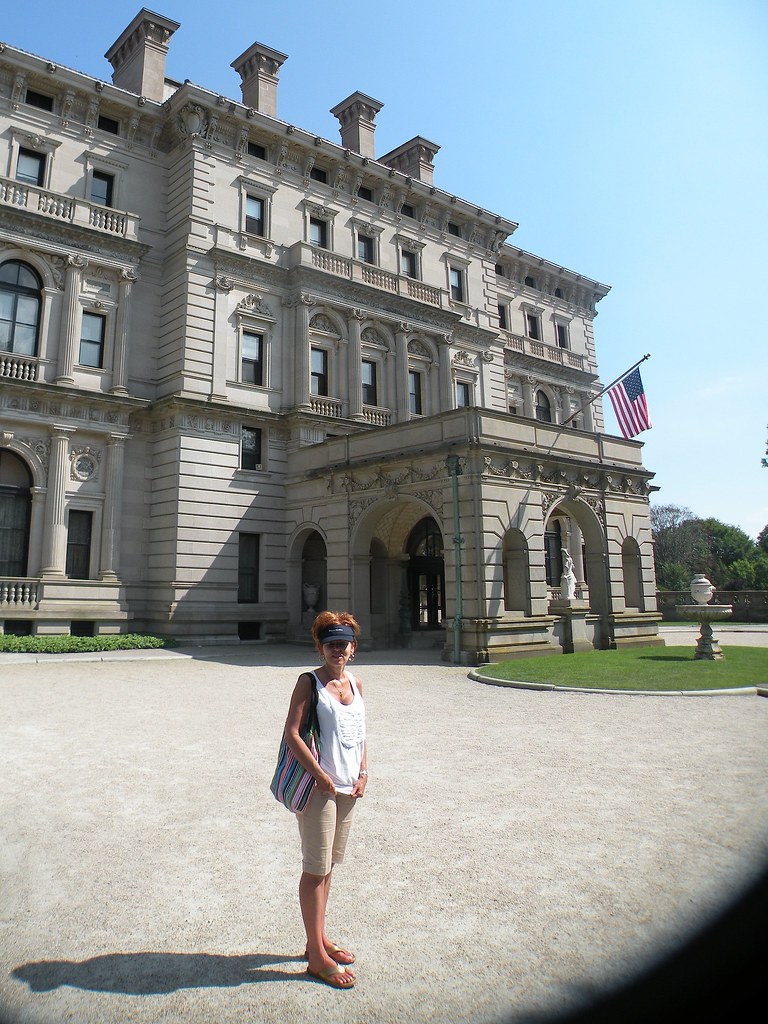
It is hard to wrap your mind around this kind of wealth. The Breakers was built as the Newport summer home of Cornelius Vanderbilt II, a member of the wealthy United States Vanderbilt family.
It has 70 rooms and has approximately 65,000 sq ft of living space. It was built between 1893 and 1895 to replace the original Breakers summer cottage Vanderbilt purchased on the property. The original mansion was wooden and was destroyed in a fire. When Vanderbilt replaced it, he wanted to build a structure that would be fireproof. I'm no expert on fireproofing buildings, but it looks pretty fireproof to me--at least the outside!
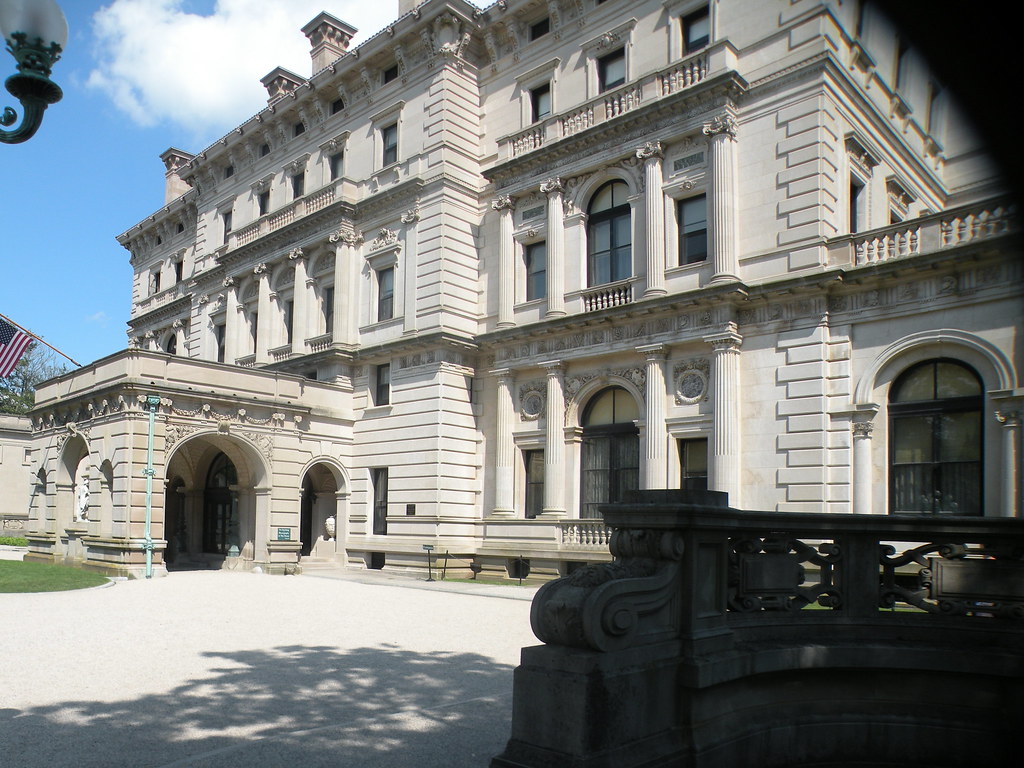
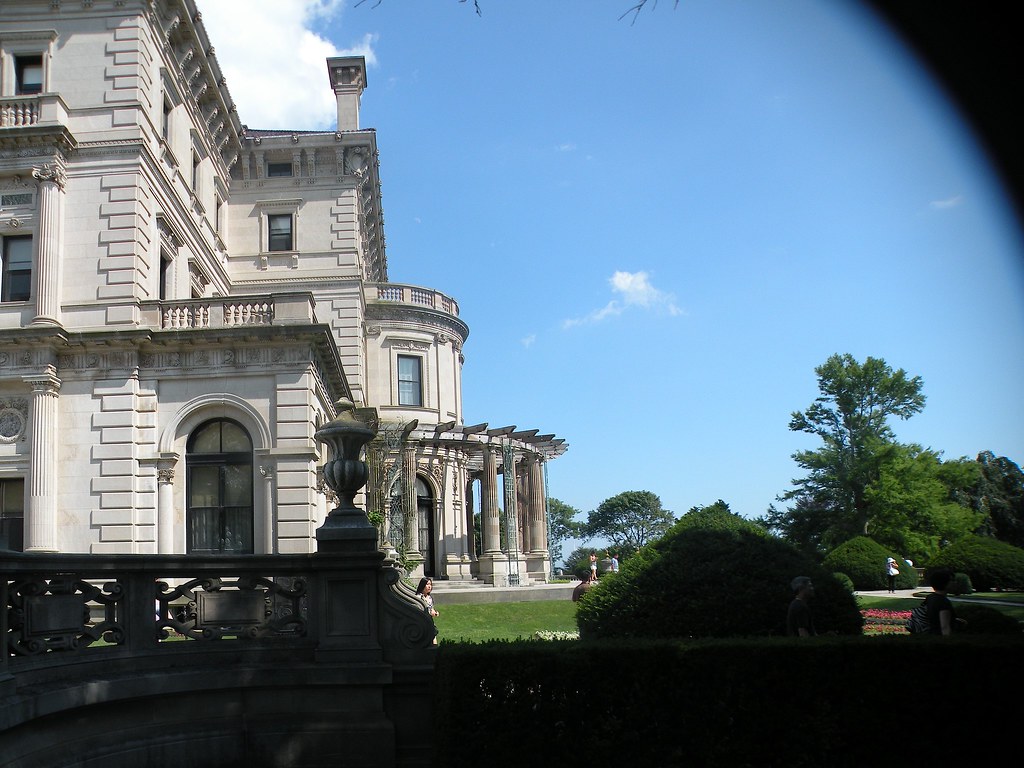
The Vanderbilts had seven children. Their youngest daughter, Gladys, who married Count Laszlo Szechenyi of Hungary, inherited the house upon her mother's death in 1934.
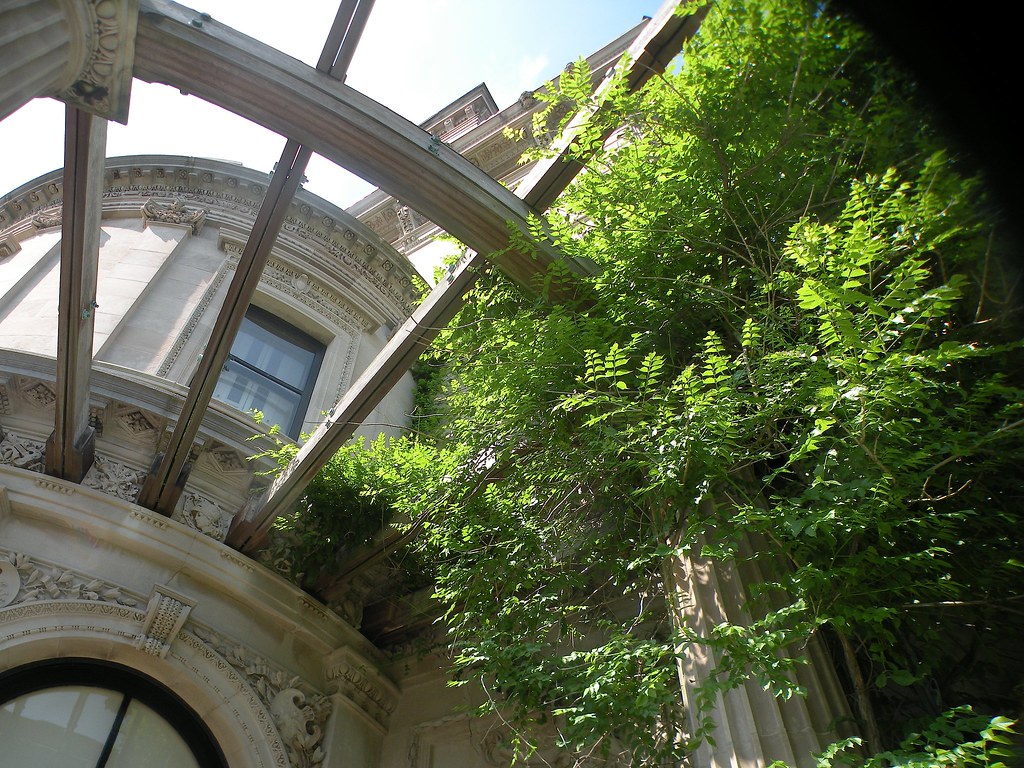
Commodore Cornelius Vanderbilt (1794-1877) established the family fortune in steamships and later in the New York Central Railroad, which was a pivotal development in the industrial growth of the nation during the late 19th century.
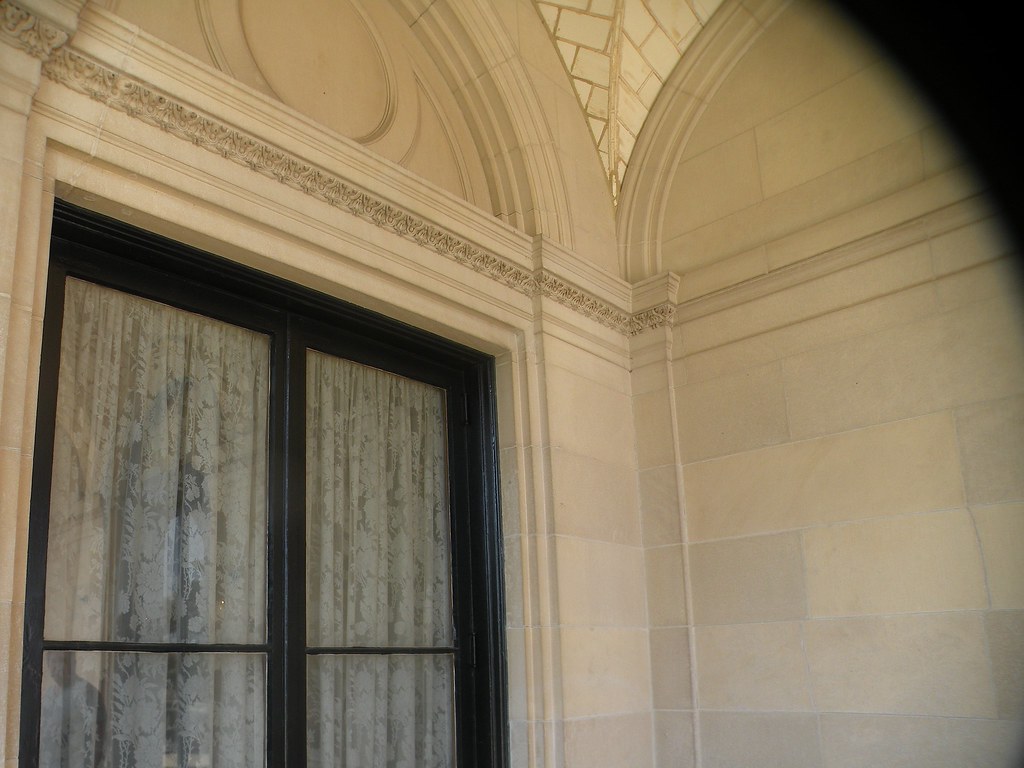
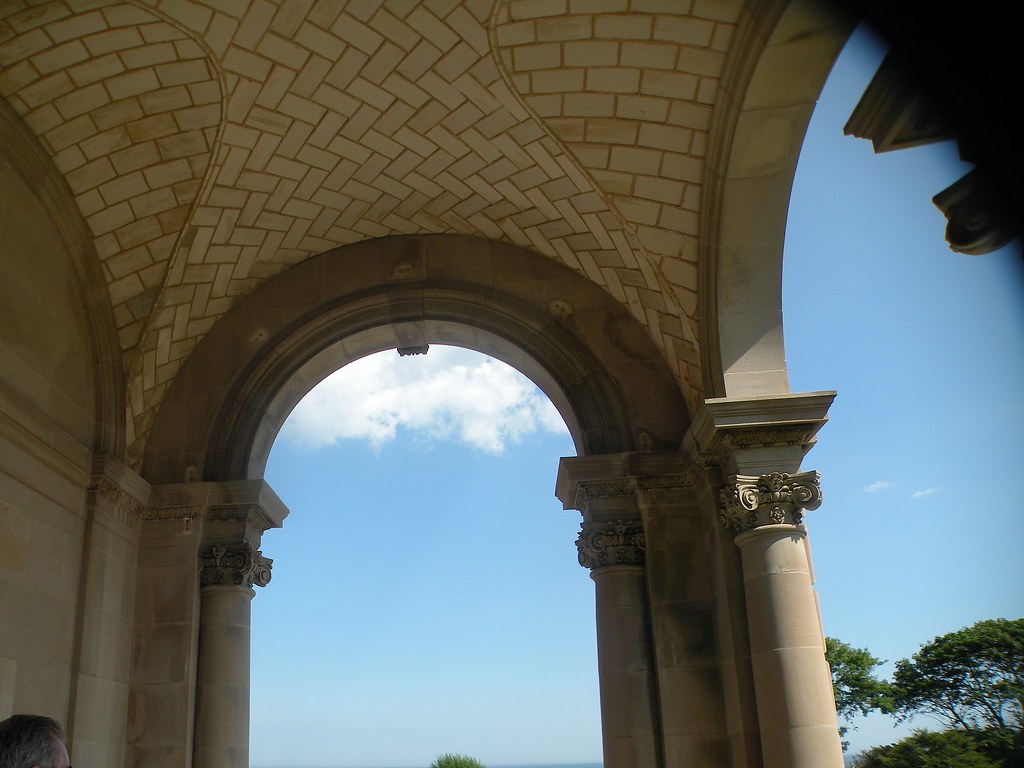
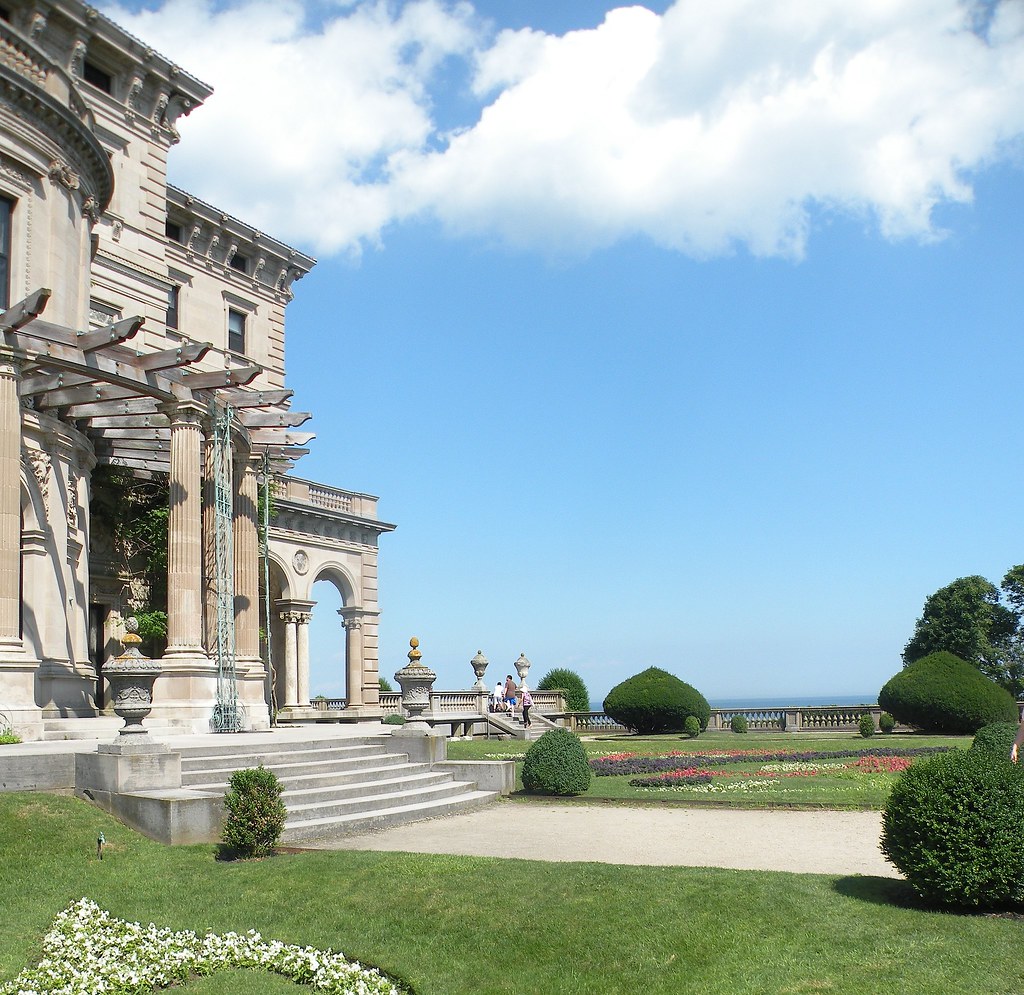
The backyard is the ocean for all three mansions!! In fact, that is why it is called the Breakers. The ocean waves break on the cliff rocks at the back of the property.
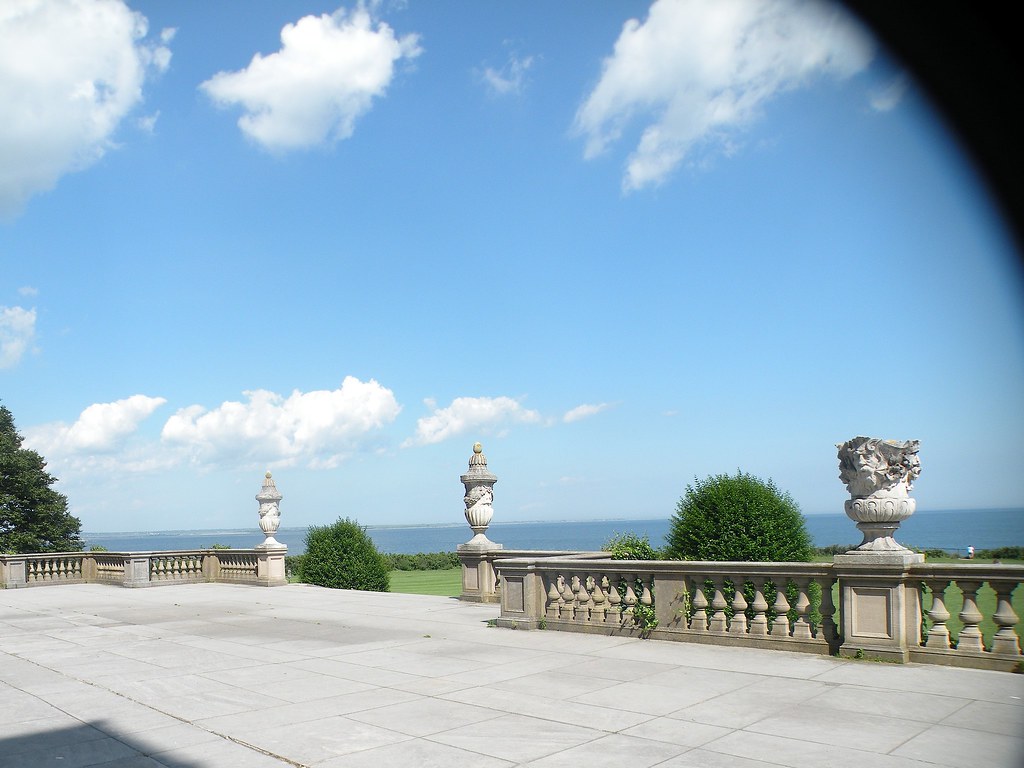
This is the back porch
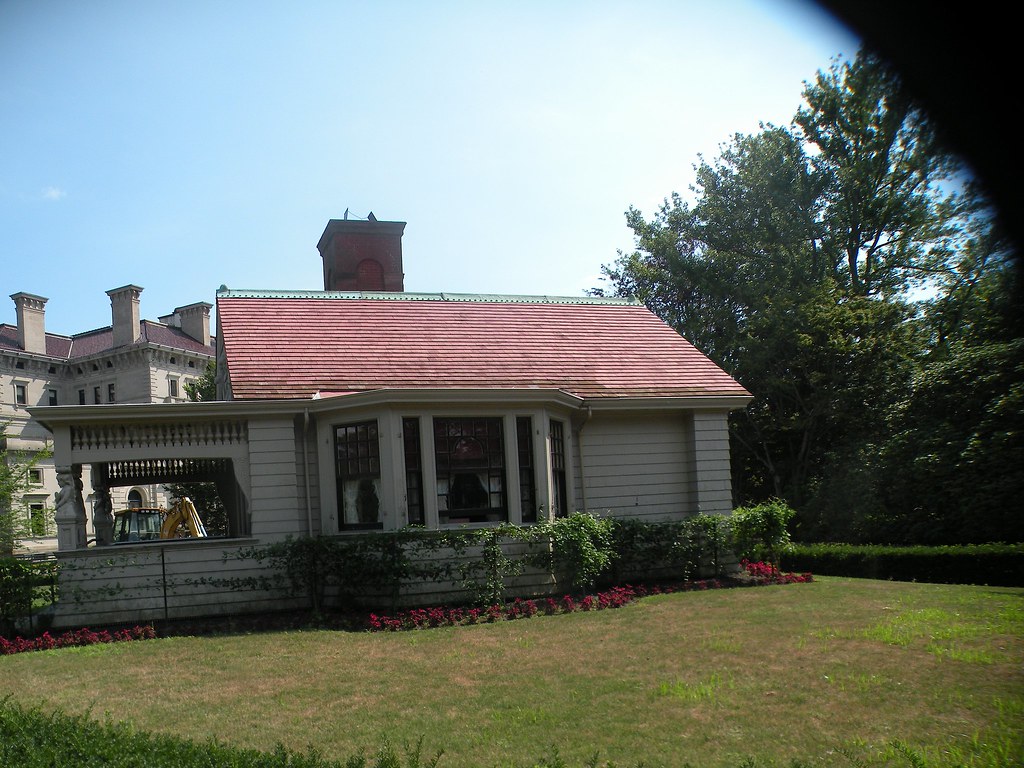
Guess what this little house is? The children's playhouse! It has a real kitchen, real bath and real fireplace!
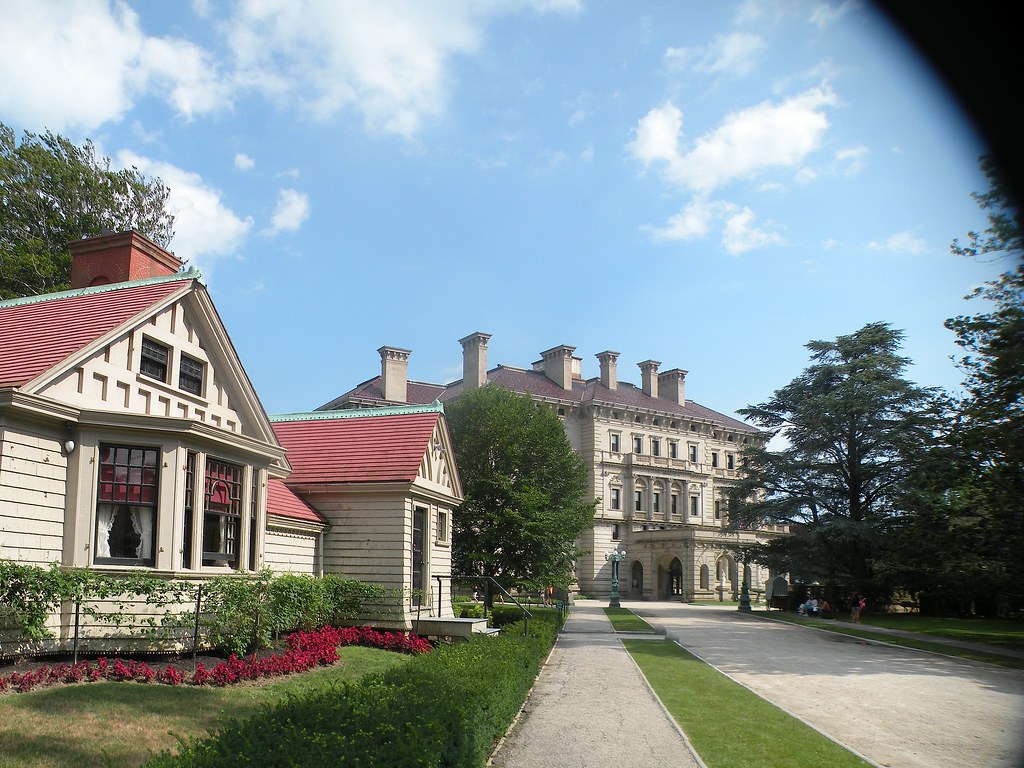
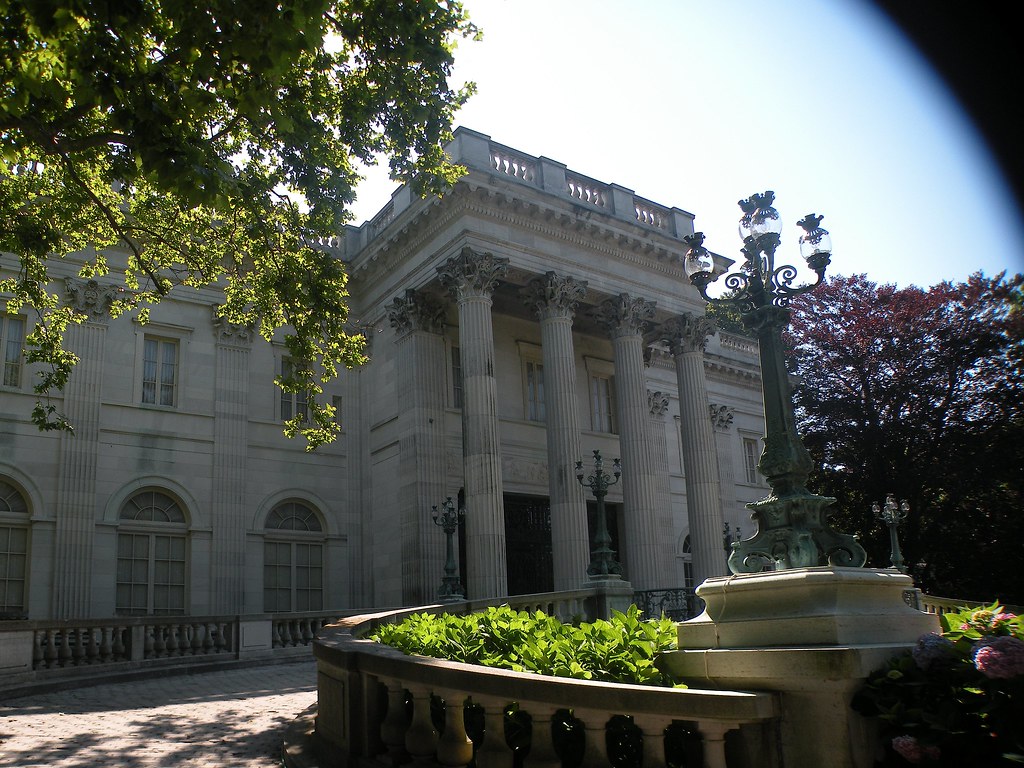
This is another mansion called the Marble House.
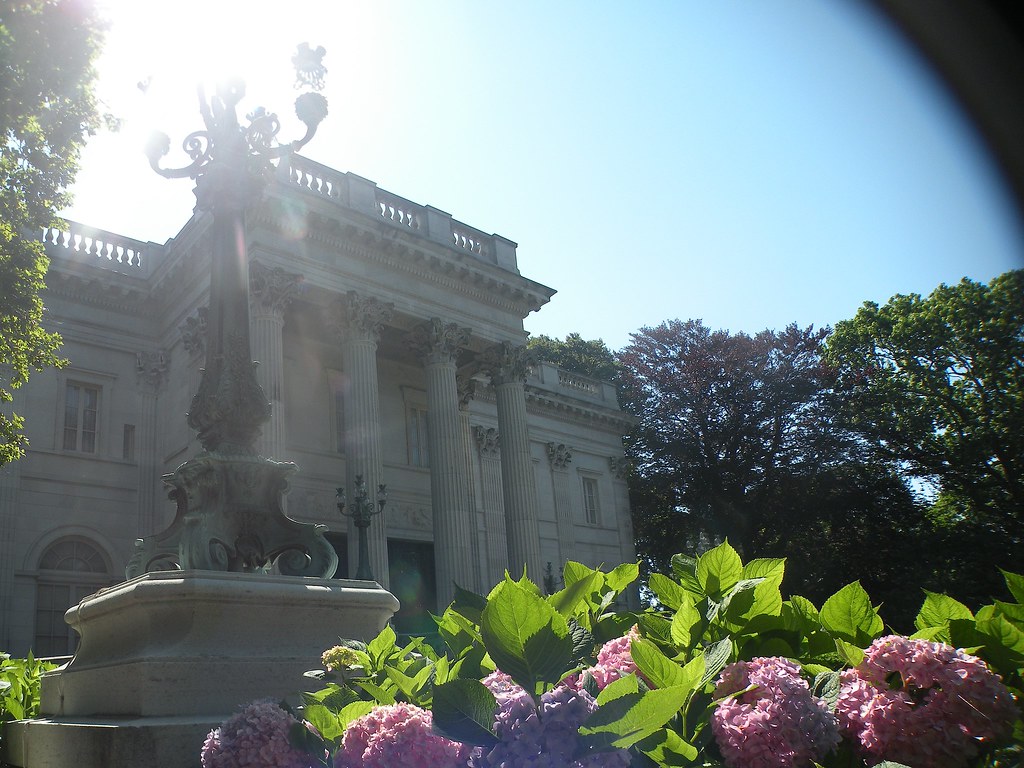
The Marble House was built between 1888 and 1892 for Mr. and Mrs. William K. Vanderbilt. It was given to his wife for her 39th birthday!! It was also her summer house. Can you believe these were only their summer houses?!
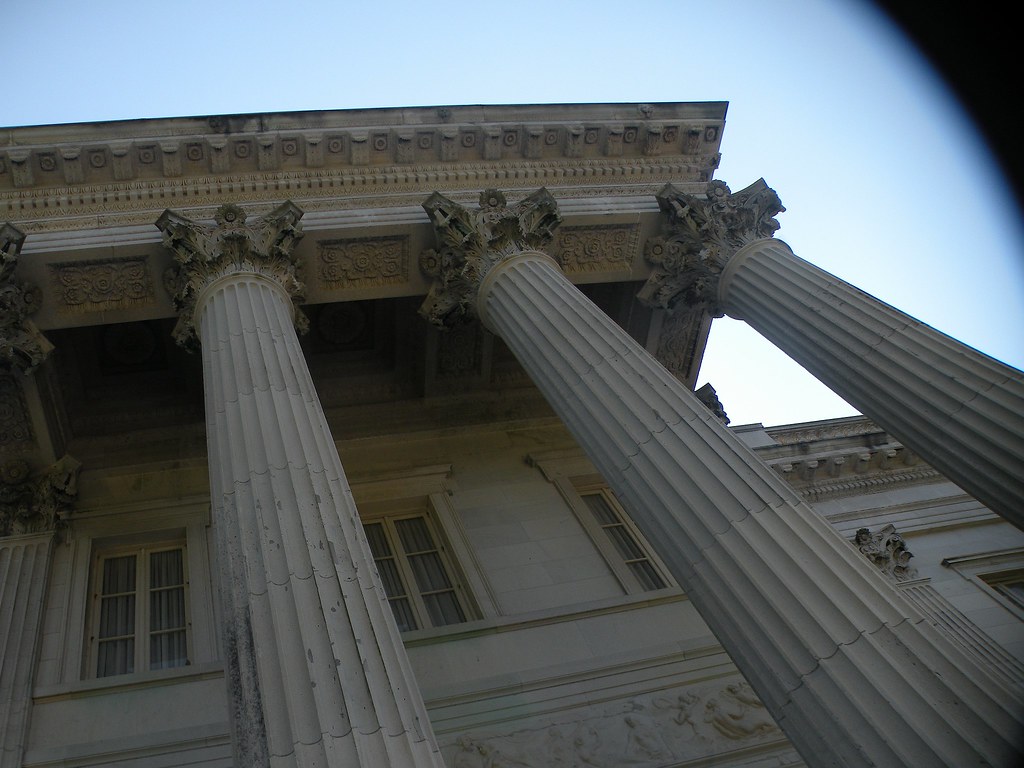
Alva Belmont (Alva Erskine Smith) known as Alva Vanderbilt. She married William Kissam Vanderbilt, with whom she had three children.
Alva Vanderbilt shocked society in March 1895 when she divorced her husband, at a time when divorce was rare among the elite. This was after her husband had given her (let her build) Marble House. As my Mom would have said, "Don't that beat all!!" : - )
She received a large financial settlement said to be in excess of $10 million, in addition to several estates. She already owned Marble House outright.
OK, this makes more sense:
The grounds for divorce were allegations of William's adultery, although there were some who believed that William had hired a woman to pretend to be his mistress so that Alva would divorce him.
One of the tour guides told me that Mrs. Vanderbilt would not agree to do all the work of designing the home until her husband put the home solely in her name. He did put it in her name too! I would guess she knew he was an adulterer. : - )

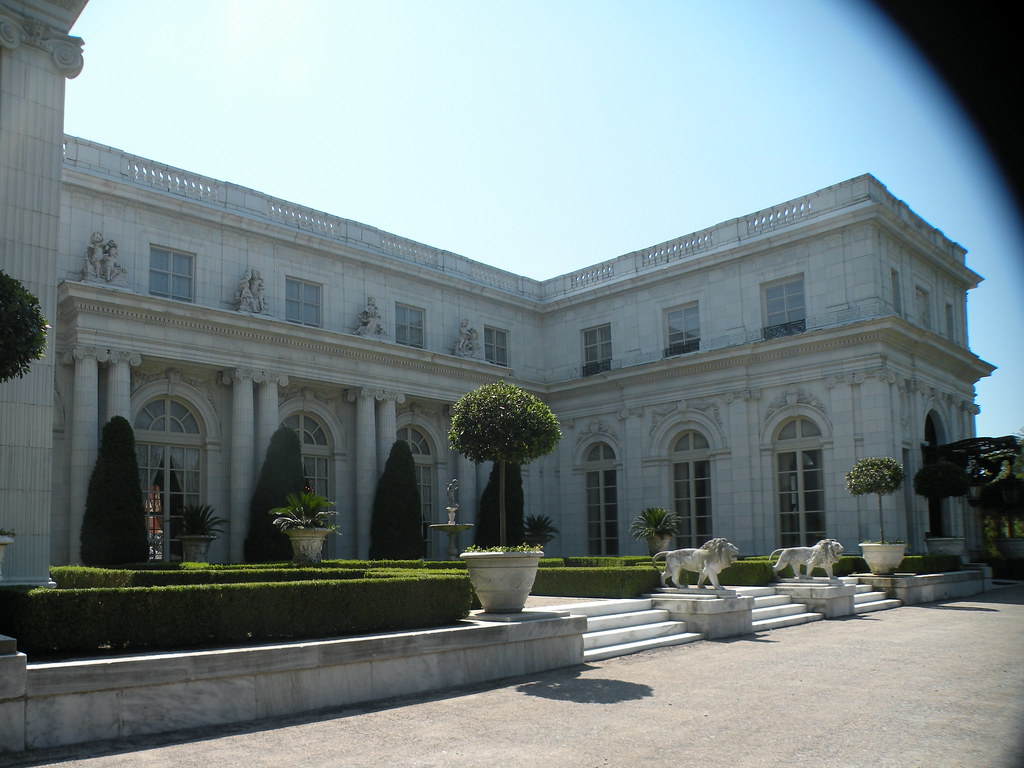
Rosecliff
Theresa Alice Fair or "Tessie," as she was known to her friends, was born in Virginia City, Nevada. Her father, James Graham Fair, was an Irish immigrant who made an enormous fortune from Nevada's Comstock silver lode, one of the richest silver finds in history. During a summer in Newport, Tessie met Hermann Oelrichs playing tennis at the Newport Casino. They were married in 1890. A year later, they purchased the property known as Rosecliff from the estate of historian and diplomat George Bancroft. An amateur horticulturist, it was Bancroft who developed the American Beauty Rose. The Oelrichs later bought additional property along Bellevue Avenue and commissioned a reknowned architect for the very rich, Stanford White, to replace the original house with the mansion that became the setting for many of Newport's most lavish parties. Given the lavishness of their "summer homes," I bet these folks knew how to throw a party!
Another note of trivia, Stanford White was murdered by millionaire Harry Kendall Thaw over White's affair with Thaw's wife, actress Evelyn Nesbit, once again proving adultery doesn't pay.
